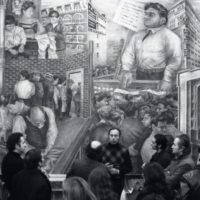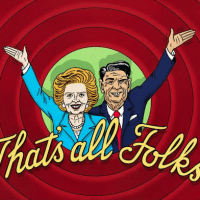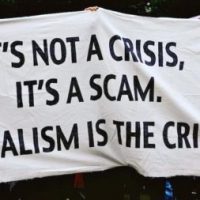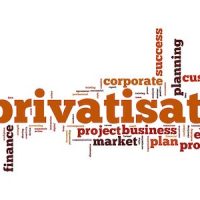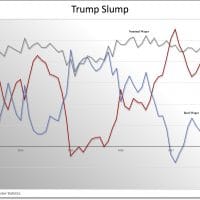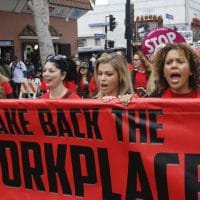-
Direct Job Creation in America with Steven Attewell
In this episode, we’re joined by Steven Attewell, Adjunct Professor of Public Policy at the City University of New York’s School of Labor and Urban Studies.
-
The rise of the student worker
The student population today is unrecognisable from that of a generation or more ago, writes Matt Myers. And it is central to any socialist project for the future.
-
Money & Power with Jamee Moudud
In this episode, we’re joined by Jamee Moudud, a professor of economics at Sarah Lawrence College, Jamee draws on the tradition of critical legal studies to extend the constitutional theory of money to new historical and international contexts.
-
When media say ‘working class,’ they don’t necessarily mean workers—but they do mean White
Since the 2016 elections, corporate media narratives about U.S. politics have fixated on the “white working class” as a pivotal demographic, presented as a hardscrabble assortment of disaffected outsiders.
-
Long read: the neoliberal order is dying. Time to wake up
In my last blog post I argued that power in our societies resides in structure, ideology and narratives–supporting what we might loosely term our current “neoliberal order”–rather than in individuals.
-
Capitalism is killing patients…and their physicians
Physician burnout, depression, and suicide increasingly invade discussions within the medical field. Depression and suicide are more common among male and female physicians, with suicide rates 1.41 and 2.27 times greater than that of the general male and female populations, respectively.
-
A sound ecological policy cannot be achieved within a capitalist framework
“Ecosocialist politics is based on recognizing that a sound ecological policy cannot be achieved within a capitalist framework. In order to restore (to the extent possible) the health of the ecosphere, it is necessary that economic decisions be no longer based on the capitalist goals of maximizing profit and accumulating wealth.”
-
Privatisation harms poor and needy, says UN poverty expert
Widespread privatisation of public goods in many societies is systematically eliminating human rights protections and further marginalising those living in poverty, according to a hard-hitting new report. The report was transmitted to the UN General Assembly on 19 October.
-
Black Lives Matter activists hail ‘historic’ verdict as killer of Laquan McDonald convicted of murder
“In Chicago instead of funding healthcare, the things we need, we have been divested from. And that’s part of a neoliberal project that’s been hegemonic since the 1970s… capitalism sets the conditions for everything that’s happened.”
-
The ‘Christine Lagarde Memo’
This secret memo was discovered in the waste basket of a high-ranking staffer in the European Commission. The memo from “the Coalition” begins “Dear Angela, Teresa, Emmanuel…” and has a further list of first names—heads of state and secretaries or ministers of finance, health and human services—were mostly scribbled over with marker.
-
The history of the workers’ unemployment insurance bill
At a time when the American population is radicalizing, when popular movements are coalescing around “radical” demands—Medicare for All, the abolition of ICE, tuition-free college, etc.—it can be useful to draw collective inspiration from the Workers’ Bill proposed by the U.S. communist party in 1930.
-
Exploitation and the social metabolism of class societies (part 2)
‘The essential difference between the various economic forms of society, between, for instance, a society based on slave-labour, and one based on wage-labour, lies only in the mode in which this surplus-labour is in each case extracted from the actual producer, the labourer.’ —Marx
-
Race, class and social strategy
Marxists have long understood that the workplace is the primary strategic site of class struggle, and that class struggle is essential for cohering a radicalized working-class majority with the capacity and will to overthrow capitalism in favor of socialism. At the same time, Marxists recognize our moral responsibility to oppose—and the strategic necessity to fight—all forms of exploitation and oppression.
-
Utopia and materialist critique
The argument I’ve been making during this series on utopia is that the utopian moment of the Marxian alternative to mainstream economics is critique.*
-
Don’t class warfare me
Marketplace’s Kai Ryssdal is no class warrior.
-
“We need new revolutionary tools to advance the struggle of the working class”
To this day, “NUMSA has not deviated from its perspective of Marxism, Leninism and its goal of building a socialist South Africa,” says Karl Cloete
-
The New Postcolonial Economics with Fadhel Kaboub
In this episode, we speak with Fadhel Kaboub (@fadhelkaboub), associate professor of economics at Denison University and President of the Global Institute for Sustainable Prosperity. Fadhel outlines a new critical approach to postcolonial political economy, arguing that re-gaining financial sovereignty is a crucial next step for postcolonial nations hoping to achieve social, economic, and environmental justice.
-
Times up for Capitalist Patriarchal Racism—and not just for the men who perform it
As we head into the 2018 elections feminists of all sorts must make sure that there is a revolutionary commitment to restructure the massive system of oppression maintained by sexual violence. Becoming a part of the existing structure is not enough—nor is simply being female.
-
New battlegrounds in the class war
Joe Hayns talks to Kim Moody about how global capital is reshaping the terrain of class struggle-and how workers are adapting.
-
Roseanne, Immigration, and the Unasked Question
The constant threat of detention and deportation discourages the undocumented employee from demanding or organizing for more pay and better working conditions—and this status is preferred by big corporations and the superrich, who profit handsomely as a result.

